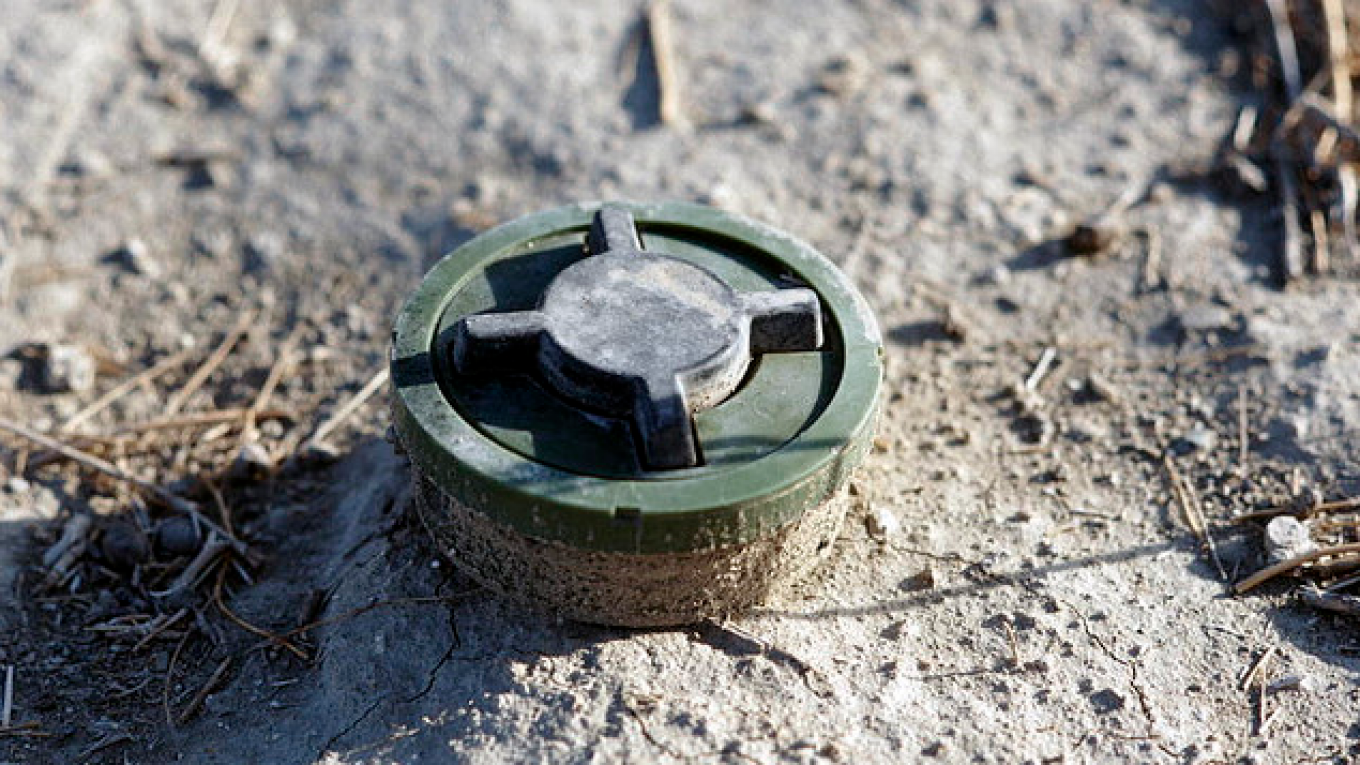The removal of unexploded World War II ordnance is dogging the opening phase of construction of a bridge to connect the Black Sea region of Crimea to the Krasnodar region on mainland Russia, Russian Transportation Minister Maxim Sokolov said Friday.
The German army occupied the Krasnodar region for a period during World War II and heavy fighting took place in the area.
"There is quite a lot of work to do to clear the area of land mines," Sokolov told President Vladimir Putin in a meeting, according to a transcript posted on the Kremlin website. "Facilities for the construction workers are in place and mine-clearing operations have begun," he added.
A giant bridge across the Kerch Strait has been planned for years, but the project gained new momentum in March when Moscow annexed the southern Ukrainian region of Crimea.
Putin has ordered work to be completed on the bridge by the end of 2018. Construction began last month and will end 14 days before Putin's deadline, Sokolov said during the meeting in the republic of Altai in southern Siberia.
"The bridge will have a two-track electrified line running the entire length … [and] it will be able to carry around 100 million tons of freight a year and a sufficient number of passenger trains," Sokolov told Putin. "[It will consist of] a two-track railway line around 42 kilometers long, and a road of around 40 kilometers in length, that will take traffic directly to the bridge itself," he added.
A Message from The Moscow Times:
Dear readers,
We are facing unprecedented challenges. Russia's Prosecutor General's Office has designated The Moscow Times as an "undesirable" organization, criminalizing our work and putting our staff at risk of prosecution. This follows our earlier unjust labeling as a "foreign agent."
These actions are direct attempts to silence independent journalism in Russia. The authorities claim our work "discredits the decisions of the Russian leadership." We see things differently: we strive to provide accurate, unbiased reporting on Russia.
We, the journalists of The Moscow Times, refuse to be silenced. But to continue our work, we need your help.
Your support, no matter how small, makes a world of difference. If you can, please support us monthly starting from just $2. It's quick to set up, and every contribution makes a significant impact.
By supporting The Moscow Times, you're defending open, independent journalism in the face of repression. Thank you for standing with us.
Remind me later.






